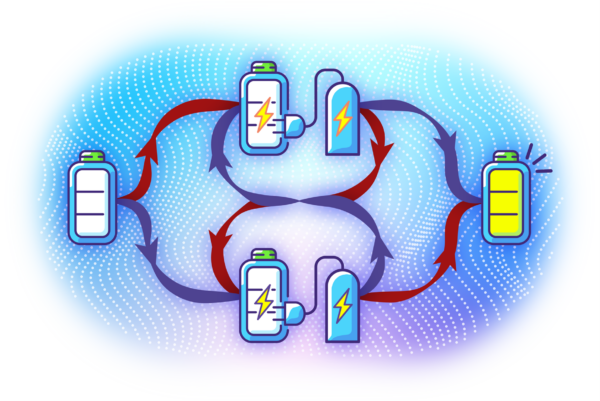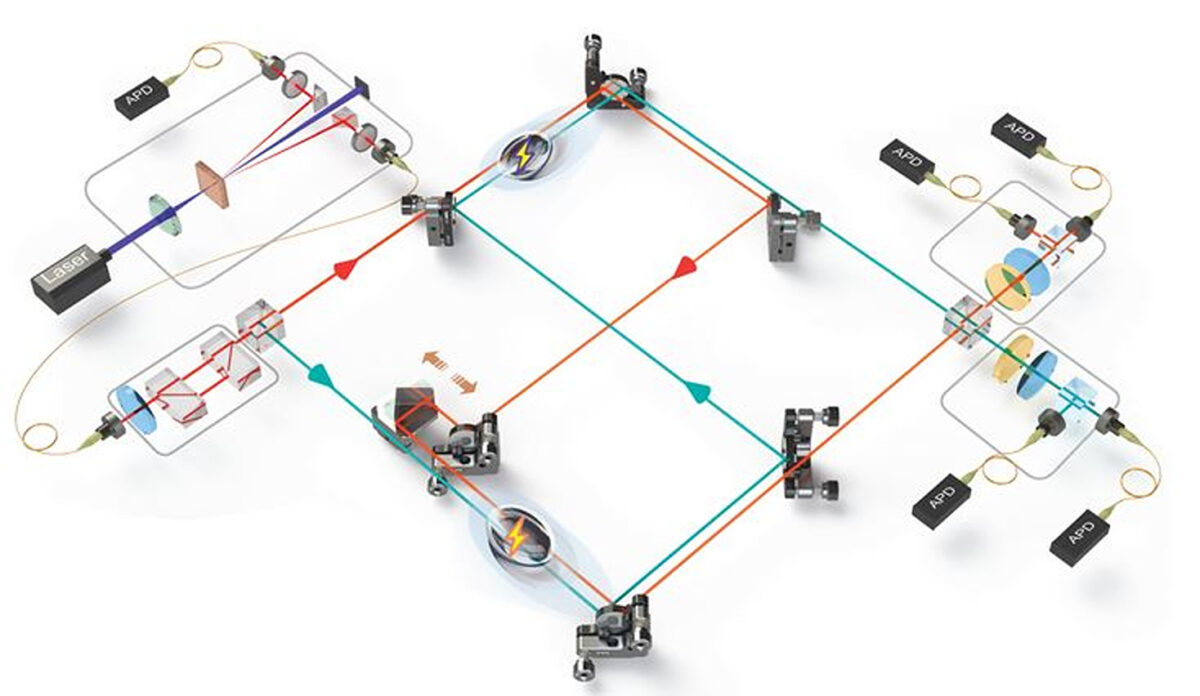In standard quantum theory, the causal order of occurrence between events is prescribed and must be definite. This has been maintained in all conventional operation scenarios for quantum batteries, which could surpass the usefulness of conventional chemical batteries in some low-power applications.
Now, for the first time, researchers led by the University of Tokyo, have taken a step further to charge quantum batteries in an indefinite causal order (ICO).
In the classical realm, causality follows a clear path, meaning that if “event A” leads to “event B,” then the possibility of B causing A is excluded. However, at the quantum scale, ICO allows both directions of causality to exist in what’s known as a quantum superposition, where both can be simultaneously true.
“With ICO, we demonstrated that the way you charge a battery made up of quantum particles could drastically impact its performance,” said graduate student Yuanbo Chen. “We saw huge gains in both the energy stored in the system and the thermal efficiency. And somewhat counterintuitively, we discovered the surprising effect of an interaction that’s the inverse of what you might expect. A lower-power charger could provide higher energies with greater efficiency than a comparably higher-power charger using the same apparatus.”

Image: University of Tokyo, ©2023 Chen et al. CC-BY-ND
The research team has proposed a nonunitary dynamics-based charging protocol and experimentally investigated this using a photonic quantum switch. They have experimented with ways to charge a quantum battery using optical apparatuses such as lasers, lenses, and mirrors to find the best ways to charge quantum batteries. They have found that the ICO protocol can outperform the conventional protocols and give rise to the anomalous inverse interaction effect.
They said that the phenomenon of ICO could find uses beyond charging a new generation of low-power devices. The underlying principles, including the inverse interaction effect uncovered here, could improve the performance of other tasks involving thermodynamics or processes that involve the transfer of heat. One promising example is solar panels, where heat effects can reduce their efficiency, but ICO could be used to mitigate those and lead to gains in efficiency instead.
Presently, quantum batteries only exist as laboratory experiments. One of the advantages of quantum batteries is that they should be incredibly efficient, but that hinges on the way they are charged, as further proved in this study.
“Current batteries for low-power devices, such as smartphones or sensors, typically use chemicals such as lithium to store charge, whereas a quantum battery uses microscopic particles like arrays of atoms,” said Chen. “While chemical batteries are governed by classical laws of physics, microscopic particles are quantum in nature, so we have a chance to explore ways of using them that bend or even break our intuitive notions of what takes place at small scales. I’m particularly interested in the way quantum particles can work to violate one of our most fundamental experiences, that of time.”
The researchers presented their findings in the study “Charging Quantum Batteries via Indefinite Causal Order: Theory and Experiment,” which was recently published in Physical Review Letters.
This content is protected by copyright and may not be reused. If you want to cooperate with us and would like to reuse some of our content, please contact: editors@pv-magazine.com.




By submitting this form you agree to pv magazine using your data for the purposes of publishing your comment.
Your personal data will only be disclosed or otherwise transmitted to third parties for the purposes of spam filtering or if this is necessary for technical maintenance of the website. Any other transfer to third parties will not take place unless this is justified on the basis of applicable data protection regulations or if pv magazine is legally obliged to do so.
You may revoke this consent at any time with effect for the future, in which case your personal data will be deleted immediately. Otherwise, your data will be deleted if pv magazine has processed your request or the purpose of data storage is fulfilled.
Further information on data privacy can be found in our Data Protection Policy.